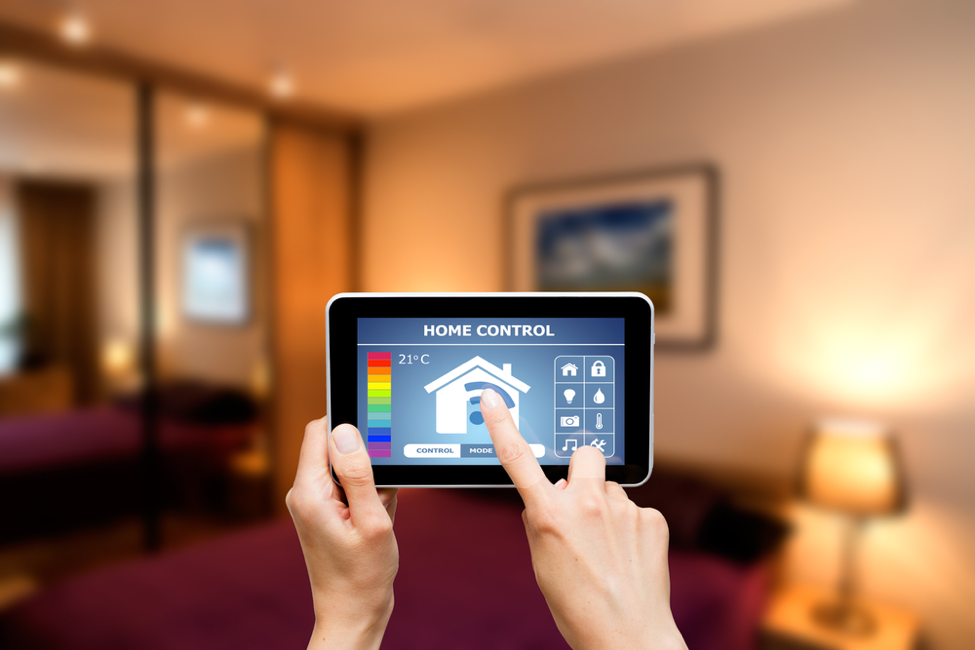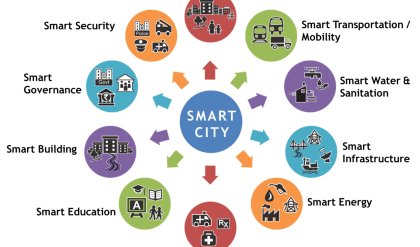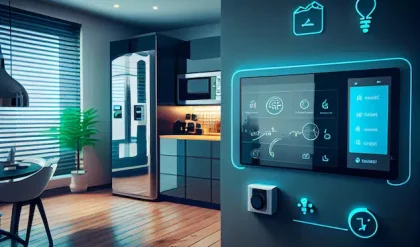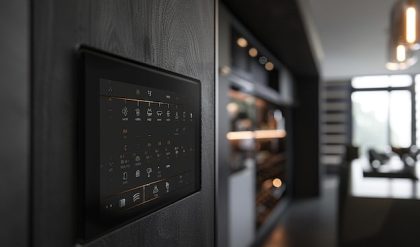
5 Smart Home Services That Will Save You Time & Money: Unlocking a Smarter, Simpler Life
The modern home is evolving, shedding its outdated, manual systems for a streamlined, intelligent experience. Smart home services are no longer a futuristic fantasy; they’re accessible tools transforming how we live, offering significant time and cost savings. This isn’t just about gadgets; it’s about reclaiming your precious hours and optimizing your household budget. Let’s dive into five game-changing services that will revolutionize your home life.
1. Smart Thermostat: Climate Control, Cost Control
Forget about wrestling with a temperamental thermostat. Smart thermostats, like Nest or Ecobee, learn your heating and cooling preferences, automatically adjusting temperatures based on your schedule and even your location. This intelligent adaptation significantly reduces energy waste, translating to lower utility bills.
Imagine: Leaving for work and knowing your thermostat automatically shifts to energy-saving mode, only to welcome you home with a perfectly comfortable temperature. No more returning to a freezing or sweltering house!
| Feature | Benefit |
|---|---|
| Learning Algorithm | Optimized energy usage, lower bills |
| Remote Control | Adjust temperature from anywhere |
| Scheduling | Automate temperature changes based on routine |
2. Smart Lighting: Illuminating Savings & Security
Smart bulbs aren’t just about changing colors; they’re about optimizing energy consumption and enhancing security. Programmable schedules ensure lights are only on when needed, eliminating wasted energy and accidental nighttime illuminations. Remote control and automation features let you simulate occupancy even when you’re away, deterring potential intruders.
Picture this: Waking up gently to gradually brightening lights, or setting a timer to automatically turn off all lights before bed. It’s convenience and energy efficiency combined.
| Feature | Benefit |
|---|---|
| Scheduling | Automated on/off times, energy saving |
| Remote Control | Control lights from anywhere |
| Simulated Occupancy | Enhanced home security |
3. Smart Security System: Peace of Mind, Budget-Friendly Protection
Traditional security systems can be costly and complex. Smart security systems, like Ring or SimpliSafe, offer a more affordable and user-friendly alternative. Motion sensors, door/window sensors, and cameras provide real-time monitoring and alerts, directly to your smartphone. This proactive approach can deter criminals and offers peace of mind.
Envision: Receiving instant alerts when motion is detected outside your home, or remotely checking in on your property while you’re away. It’s security without the hefty price tag.
| Feature | Benefit |
|---|---|
| Motion Detection | Real-time alerts, deterrent to intruders |
| Remote Monitoring | Check in on your home from anywhere |
| Affordable Options | Competitive pricing compared to traditional systems |
4. Smart Sprinkler System: Water Conservation & Time Saved
Watering your lawn shouldn’t be a daily chore. Smart sprinkler systems utilize weather data and soil moisture sensors to optimize watering schedules, conserving water and preventing overwatering. This automated approach saves you time and reduces your water bill.
Think: No more forgetting to water the lawn or wasting water on rainy days. Your smart system handles it all, ensuring a lush, healthy lawn without the effort.
| Feature | Benefit |
|---|---|
| Weather Sensors | Adjust watering based on weather conditions |
| Soil Moisture Sensors | Prevents overwatering, conserves water |
| Automated Scheduling | Save time and reduce water consumption |
5. Smart Appliances: Efficiency & Convenience Redefined
Smart refrigerators, washing machines, and other appliances offer a range of benefits, from energy efficiency to streamlined management. Many smart appliances can be controlled remotely, allowing you to pre-heat your oven on your commute home or start a load of laundry while you’re still at the office.
Imagine: Receiving alerts when your refrigerator needs restocking, or remotely starting your dishwasher before you even arrive home. It’s seamless integration of technology into your daily routines.
| Feature | Benefit |
|---|---|
| Remote Control | Manage appliances from anywhere |
| Energy Efficiency | Reduce energy consumption |
| Smart Monitoring | Track appliance performance and usage |
By integrating these five smart home services, you’re not just adding technology; you’re building a more efficient, comfortable, and cost-effective home. It’s an investment in your time, your budget, and your peace of mind. Embrace the future of home living—it’s smarter than you think.

Additional Information
5 Smart Home Services: A Deeper Dive into Time & Money Savings
Smart home technology offers significant potential for enhancing efficiency and reducing expenses. While the initial investment can seem daunting, the long-term benefits, especially in time saved and money conserved, often outweigh the upfront costs. Let’s delve deeper into five key smart home services, analyzing their impact beyond superficial claims.
1. Smart Thermostats (e.g., Nest, Ecobee):
Beyond the Headline: Smart thermostats aren’t just about remote temperature control. Their real value lies in sophisticated learning algorithms. They analyze occupancy patterns, weather forecasts, and even your personal preferences to optimize heating and cooling schedules. This goes beyond simple programming; it’s predictive optimization.
Analysis: Studies consistently show energy savings of 10-15% through smart thermostat usage. A 2019 study by the Lawrence Berkeley National Laboratory found that smart thermostats resulted in an average energy savings of 12% for heating and 15% for cooling. This translates to tangible cost savings, particularly significant in regions with volatile energy prices. Furthermore, the time saved by eliminating manual adjustments and avoiding over-heating or over-cooling is invaluable, especially for busy households.
Case Study: Consider a family living in a climate with extreme temperatures. A smart thermostat learns that the family is typically away during weekdays from 9 am to 5 pm. It automatically adjusts the temperature during these hours, saving energy without compromising comfort upon their return. This eliminates the need for manual adjustments every day, adding up to substantial time savings over the year.
2. Smart Lighting (e.g., Philips Hue, LIFX):
Beyond the Headline: Smart lighting is more than just colorful ambiance. Its effectiveness lies in automated control and energy-efficient features.
Analysis: Beyond convenience (turning lights on/off remotely or via voice command), smart lighting allows for automation based on occupancy, time of day, or even sunrise/sunset. This eliminates the need to remember to turn off lights, resulting in immediate energy savings. Many systems integrate with motion sensors, further reducing energy waste. Moreover, choosing energy-efficient LED bulbs significantly reduces electricity consumption compared to traditional incandescent bulbs. Studies indicate that replacing incandescent bulbs with LEDs can reduce energy consumption by up to 75%.
Example: Imagine a scenario where you leave for work and forget to switch off the lights. With smart lighting integrated with a geofencing feature, the system automatically turns off all lights in the house when everyone leaves and turns them on when someone approaches the house.
3. Smart Security Systems (e.g., Ring, SimpliSafe):
Beyond the Headline: Smart security goes beyond basic alarm systems. Features like video surveillance, remote monitoring, and intelligent alerts provide a heightened sense of security and potentially lower insurance premiums.
Analysis: The peace of mind offered by a smart security system is invaluable. The ability to remotely monitor your home, receive immediate alerts of suspicious activity, and even communicate with visitors via two-way audio significantly reduces anxiety. Moreover, some insurance companies offer discounts on home insurance premiums for homes equipped with monitored security systems, further reducing costs.
Statistic: According to a study by the Insurance Information Institute, homes with security systems experience a lower incidence of burglaries compared to homes without them. This directly translates to lower financial losses due to theft and potential damage.
4. Smart Appliances (e.g., Smart Refrigerators, Washing Machines):
Beyond the Headline: Smart appliances offer convenience and efficiency far beyond basic functionality.
Analysis: Features such as remote monitoring, automated scheduling, and intelligent energy management contribute to significant time and cost savings. A smart refrigerator, for example, can alert you to low stock, preventing food waste and saving money on groceries. Smart washing machines optimize water and energy usage based on the type and amount of laundry, leading to reduced utility bills.
Example: A smart washing machine automatically adjusts the wash cycle based on the load size and type of fabric, ensuring optimal cleaning with minimized water and energy consumption. This not only saves money on utility bills but also extends the lifespan of the appliance.
5. Smart Sprinkler Systems (e.g., Rachio, Rain Bird):
Beyond the Headline: Smart sprinkler systems are not merely about convenient scheduling. They optimize water usage based on weather conditions, significantly reducing water bills and conserving a precious resource.
Analysis: These systems utilize weather data, soil moisture sensors, and evapotranspiration rates to optimize watering schedules, minimizing water waste from overwatering. This can lead to substantial savings on water bills, especially in regions with water restrictions or high water prices. Furthermore, reducing water usage contributes to environmental sustainability.
Statistic: Studies have shown that smart sprinkler systems can reduce water consumption by up to 50% compared to traditional systems. This translates to significant cost savings and a positive environmental impact.
Conclusion:
Smart home services offer a compelling proposition for homeowners seeking both convenience and cost savings. While the initial investment requires careful consideration, the long-term benefits – including reduced energy and water bills, minimized waste, increased security, and significant time savings – often justify the expense. A detailed analysis of individual needs and a strategic approach to implementation are key to maximizing the return on investment in smart home technology.





